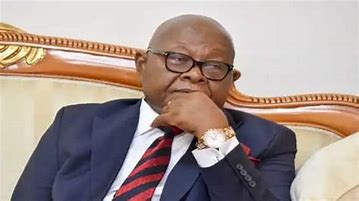The New Patriotic Party (NPP), facing the stark reality of a significant electoral defeat in the 2024 general elections, has initiated a comprehensive internal review process to dissect the factors that contributed to their loss. An 11-member committee, chaired by the seasoned political figure and former Speaker of Parliament, Prof. Mike Oquaye, has been entrusted with this crucial task. Their mandate is to meticulously examine the party’s internal machinery, campaign strategies, and any other challenges that may have played a role in their electoral setback. The committee is expected to present a detailed report, encompassing their findings and recommendations for the party’s future, to the National Council within a three-month timeframe. This introspection underscores the NPP’s commitment to understanding the root causes of their defeat and charting a course correction for future electoral success.
The 2024 general elections witnessed a significant shift in the Ghanaian political landscape. Former President John Dramani Mahama, representing the National Democratic Congress (NDC), emerged victorious, securing a decisive win with 6,328,397 votes, translating to 56.55% of the total votes cast. The NPP’s presidential candidate, Dr. Mahamudu Bawumia, trailed significantly, garnering 4,657,304 votes, which represented 41.61% of the votes. This substantial margin of victory, officially announced by the Electoral Commission on December 9, signaled a clear mandate for Mahama and the NDC. The resounding victory not only positioned Mahama for a return to the presidency but also ushered in a wave of change in the parliamentary landscape.
The NDC’s triumph extended beyond the presidential race, sweeping a significant majority in the parliamentary elections. Securing over 180 seats, the NDC achieved a commanding presence in the legislature, wresting control of constituencies that had previously been strongholds of the NPP. This parliamentary dominance further solidified Mahama’s mandate and provided him with a strong foundation to implement his policy agenda. The shift in parliamentary power represents a significant blow to the NPP, limiting their ability to influence legislative processes and highlighting the depth of their electoral defeat.
The NPP’s decision to establish the investigative committee reflects the party’s recognition of the need for deep introspection and strategic recalibration. The committee’s comprehensive review will encompass a thorough examination of the party’s internal electoral processes, scrutinizing aspects such as candidate selection, voter mobilization efforts, and the overall effectiveness of their internal organizational structure. This internal evaluation will be crucial in identifying any weaknesses or inefficiencies that may have hampered the party’s performance. The committee’s mandate also extends to analyzing the effectiveness of the NPP’s campaign strategies. This will involve assessing the messaging, communication channels, and targeting strategies employed during the campaign period. Identifying misalignments between the party’s message and the electorate’s concerns will be a key aspect of this analysis.
Beyond the internal dynamics, the committee will also investigate external factors that may have influenced the election outcome. This includes analyzing the broader political and socioeconomic context, considering factors such as public sentiment, economic conditions, and the influence of external actors or events. Understanding the interplay of these external forces with the party’s internal strategies will provide a more holistic picture of the electoral landscape. The committee’s findings will be crucial in informing the NPP’s future direction, offering valuable insights into areas requiring reform and adaptation.
The outcome of this review process holds significant weight for the NPP’s future. The committee’s recommendations will likely encompass a range of strategic and structural changes aimed at revitalizing the party. These could include reforms to internal processes, such as strengthening grassroots engagement, streamlining candidate selection procedures, and enhancing internal communication. The review may also lead to adjustments in the party’s ideological positioning and policy platform to better resonate with the electorate. Furthermore, the committee’s findings may prompt a reassessment of the party’s leadership structure and campaign strategies, paving the way for a renewed and more effective approach to future elections. The success of the NPP’s recovery will depend heavily on the party’s willingness to embrace the committee’s recommendations and implement necessary changes to regain public trust and electoral competitiveness.


